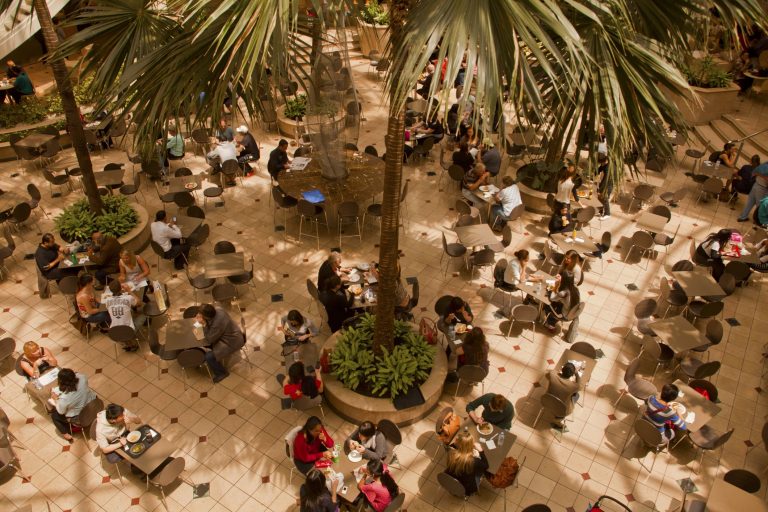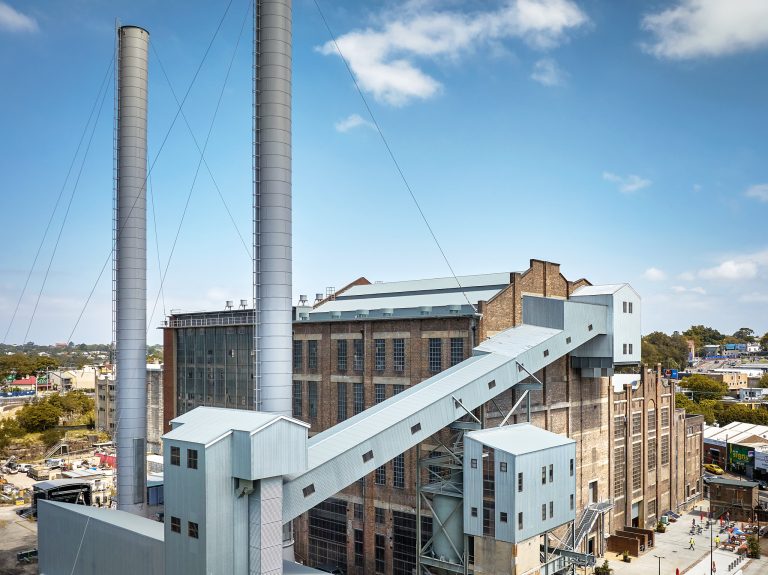LOGOS joins the surging tide of industrial property deals
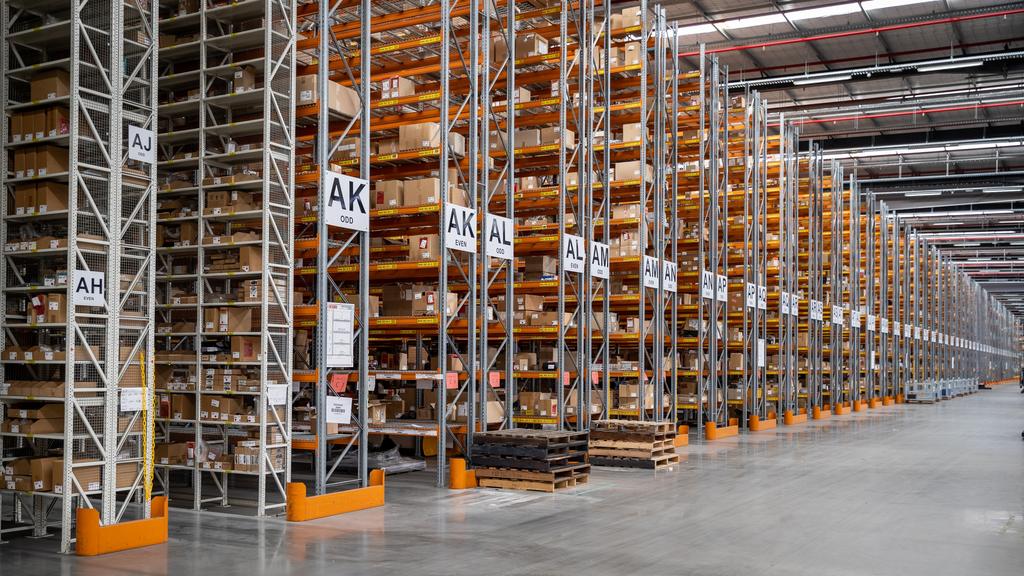
Industrial property values are holding up on the back of surging rents and companies making long-term commitments.
Billions of dollars worth of industrial property is on the block as the boom in logistics rolls on, with big companies including e-commerce and retail players taking up space in huge distribution centres.
Big players such as Woolworths and Amazon have invested billions of dollars in making their supply chains more efficient and striking deals to expand in new facilities in well-connected suburbs in major cities.
International pension funds and local superannuation funds are also chasing the assets, with about $5bn worth of big portfolios in play or recently traded. And now Canadian group Ivanhoé Cambridge is looking to sell its interest in a $1.2bn portfolio of warehouses across Sydney and Melbourne.
The portfolio is run by specialist funds manager LOGOS, which is also fielding bids on a major stake in another $3bn fund controlled by sovereign wealth fund the Abu Dhabi Investment Authority.
Others are also striking deals, with Stockland seeking a capital partner on a portfolio that could be worth $2bn and a Dexus-run fund chasing a partner as South Korean group NPS exits. Mirvac has also just struck a partnership with super fund Australian Retirement Trust worth close to $400m.
The deals frenzy comes as a new class of hi-tech warehouses cement their place as the most sought-after property asset class, amid concerns about the value of offices and shopping malls.
Ivanhoé Cambridge, the real estate investment management business of Canadian institutional investor Caisse de dépôt et placement du Quebec, had backed the latest $1.2bn portfolio’s growth since 2015. It remains deeply invested in the sector, including at Sydney’s huge Moorebank Logistic Park, where it is backing the LOGOS development.
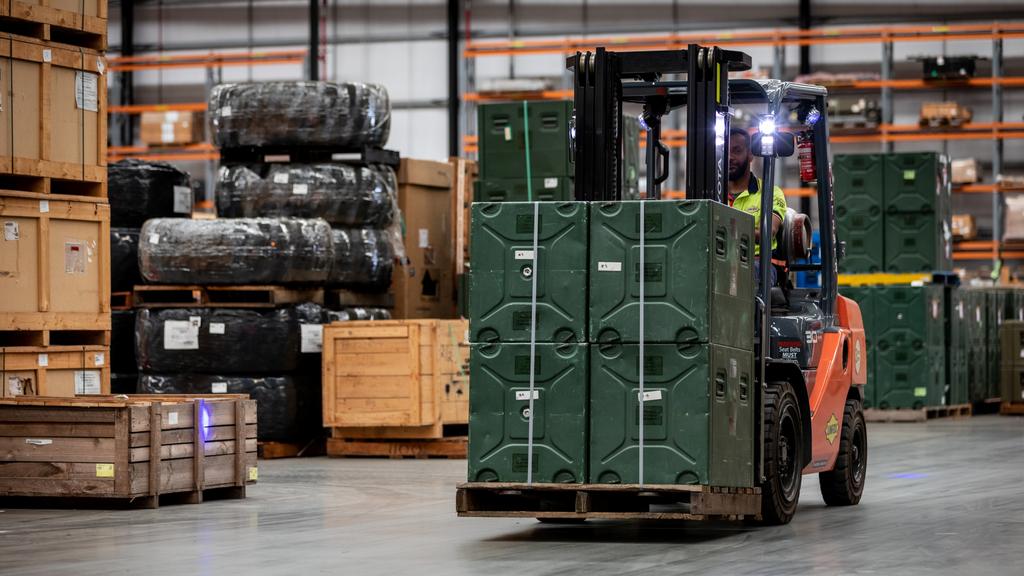
A forklift driver at Sydney’s Moorebank Logistics Park.
The LOGOS-managed fund includes six properties across Sydney and Melbourne. The investors in it include Singapore-listed ESR-LOGOS Logistics REIT and Ivanhoé Cambridge. Ivanhoé sold roughly half of its stake in the fund to the Singapore-listed trust in 2021 and became a major shareholder in that offshore fund. It is now seeking to divest the remainder of its stake in the vehicle that owns the local properties, with LOGOS managing the search for a new investor.
LOGOS head of funds management, Australia and New Zealand, Sean Singh, said there were a number of portfolios available as the market had reopened after effectively being shut in the second half of last year as interest rates jumped.
Now concerns about values have settled with industrial properties holding up on the back of surging rents and the companies making long-term commitments to large facilities. For listed real estate investment trusts looking to recapitalise their balance sheets, industrial property is one of the few asset classes where they can get real liquidity without a significant discount to book values.
“It’s really the only asset class where you can really achieve liquidity without incurring a large impairment to current and historic book value,” Mr Singh said. He is bullish about inbound interest in the sector.
“Every investor that has an Asia-Pacific strategy is saying they want to focus on developed markets, like Australia and Japan, and possibly Singapore and Korea as other markets,” he said. “And then they want industrial or multifamily,” he said.
“No one was talking about counter cyclical retail or offices … we think there will still be a huge weight of capital for industrial,” he said after a recent roadshow.
After the sale, Ivanhoé will be seeking to pour the proceeds back into new logistics projects in Australia with LOGOS. Under the deal, it is effectively exiting an interest of about 65 per cent in the portfolio with a single investor most likely to snap it up.
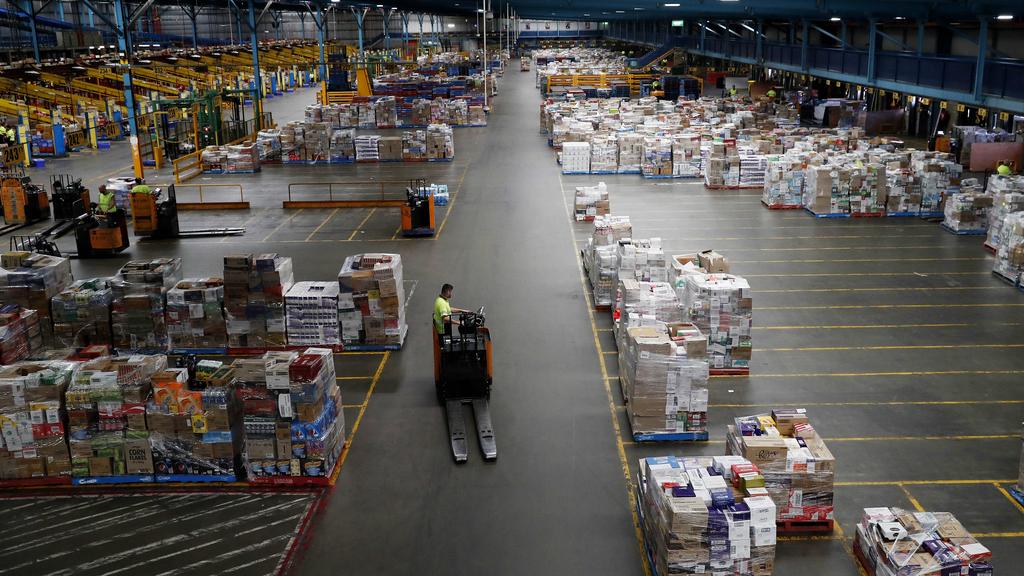
Woolworths’ distribution centre at Minchinbury in Sydney’s west. Picture: Nikki Short
Three key properties make up the bulk of the portfolio – a newly built prime logistics property, the Villawood Logistics Estate in Sydney, Woolworths regional distribution centre, in Minchinbury, also in Sydney, and the Emergent cold storage facility in North Laverton in Melbourne. Two smaller warehouses in Melbourne and one in Sydney round out the portfolio.
They are in the most sought-after logistics areas in the cities and are high-quality assets, with some offering a chance to add value by developing more buildings on the sites.
The underlying market dynamics are driving interest. Mr Singh said the range of industrial leasing deals being struck in Australia was “quite phenomenal”.
“Even when you look at the vacancy on a global relative basis, Australia, and Sydney, has the lowest vacancy in the world,” he said.
“It’s incredibly tight, but we’re still seeing lots of demand, from both new and existing tenants.”
Colliers agents Gavin Bishop and Sean Thomson and Grant Samuel advisers Adam Fitzsimmons and Lachlan Whittaker are handling the portfolio sale.
Colliers research has shown that the industrial property sector is proving resilient to continued economic headwinds, as average national prime industrial values are moving up as rents are mitigating the impact of average national prime yields bumping up.
Industrial values are now on par with where they sat at the beginning of 2022, prior to interest rate and broader economic market fluctuations, and the sector’s attractiveness is likely to be shored up as new capital gets set.
“Following a contraction in average capital values through parts of 2022 as yield expansion outpaced rental growth, the situation has now reversed,” Mr Bishop said.
“Average prime national rental growth of 40 per cent over the last 18 months has established the industrial sector as a stalwart in the broader commercial real estate investment market.
“As attention is drawn to industrial yields, it’s important to note their diluted impact on values has continued to attract new institutional and offshore investors,” he said.


